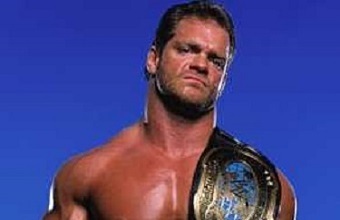In the annals of professional wrestling history, few incidents have cast as long a shadow as the passing of Chris Benoit. A respected and accomplished wrestler, Benoit’s life took a horrifying turn in June 2007, when he became the central figure in a shocking double murder-suicide that sent shockwaves through the wrestling community and prompted soul-searching within the industry.
Chris Benoit’s wrestling journey was marked by dedication, talent, and a commitment to his craft. Born on May 21, 1967, in Montreal, Quebec, Canada, he rose through the ranks of professional wrestling, earning a reputation as one of the most technically gifted and hardworking performers in the business. His career began in the late 1980s, and he quickly made his mark in various wrestling promotions.
Benoit’s path led him to World Championship Wrestling (WCW), where he established himself as a top-tier wrestler. His fierce in-ring style, characterized by powerful suplexes and intense grappling, earned him a dedicated following. In 2000, he made his debut in the World Wrestling Federation (WWF, now WWE), where he continued to impress fans and peers alike with his incredible athleticism and hard-hitting performances.
However, on June 24, 2007, the wrestling world was shaken to its core when news broke of a series of deaths at the Benoit residence in Fayetteville, Georgia. Chris Benoit, his wife Nancy Benoit, and their 7-year-old son Daniel were found dead. As details emerged, it became apparent that Benoit had committed a double murder-suicide, taking the lives of his wife and child before ending his own.
The revelation of this shocking and gruesome act left fans, fellow wrestlers, and industry insiders reeling. The tragedy raised numerous questions about the mental and emotional toll of professional wrestling, the impact of concussions and head injuries, and the delicate balance between the portrayal of violence in the ring and the real-life consequences of such behavior.
As investigations unfolded, it became apparent that Chris Benoit had struggled with mental health issues and depression. Reports indicated that he had been experiencing a decline in his mental well-being, which had affected his behavior and interactions in the days leading up to the tragedy. The incident prompted discussions about the pressures placed on wrestlers, the need for mental health support, and the potential dangers of unchecked physical and emotional stress.
The wrestling community and the media engaged in intense scrutiny of the events surrounding Chris Benoit’s passing. The tragedy prompted WWE to take swift and unprecedented action. Initially, the company aired a memorial episode of Monday Night Raw to honor Benoit’s memory, but as the details of the incident emerged, WWE faced a difficult decision regarding how to handle his legacy.
In an unprecedented move, WWE decided to virtually erase all references to Chris Benoit from their programming and media platforms. This included removing him from the company’s website, refraining from using his name in broadcasts, and even editing him out of historical footage. This approach was driven by a desire to prevent any glorification of Benoit’s actions and to focus on raising awareness about the risks of concussions and the importance of mental health support for wrestlers.
The decision to erase Chris Benoit’s legacy from WWE’s records remains a contentious topic. While some argue that it’s important to remember his contributions to wrestling, others contend that his actions were so heinous that any attempt to celebrate his wrestling achievements would be inappropriate and disrespectful to the victims.
The legacy of Chris Benoit is an intricate and deeply tragic one. On one hand, he was a wrestler who achieved great success in the industry, known for his technical prowess, hard-hitting style, and dedication to his craft. On the other hand, the horrifying nature of his final actions casts a long shadow over his achievements, leading to questions about accountability, mental health, and the responsibilities of the wrestling industry to its performers.
In the years since the tragedy, discussions about mental health support in professional wrestling have gained momentum. The wrestling community has become increasingly aware of the physical and emotional toll that the industry can exact on its performers. Initiatives have been introduced to provide resources and assistance for wrestlers struggling with mental health issues, concussions, and the pressures of the business.
In conclusion, the passing of Chris Benoit stands as one of professional wrestling’s darkest moments. His wrestling career, marked by talent and dedication, took a tragic turn with the events of June 2007. The aftermath of the incident prompted discussions about mental health, the impact of concussions, and the ethical considerations of remembering his legacy. The incident serves as a somber reminder of the importance of addressing mental health issues and providing support to those within the wrestling industry, ensuring that such a tragedy is never repeated.
